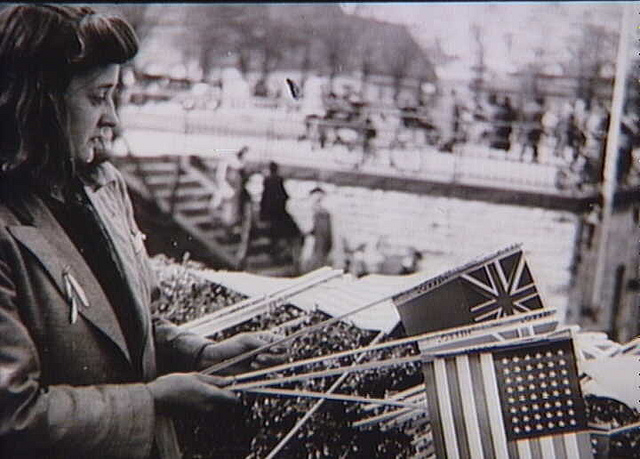Tony Judt, who died in 2010 from amyotrophic lateral sclerosis, had the quality of an epigone. This is not the case because he was a historian of a stripe very much in retreat from the onslaught of post-structuralist trends since the 1970s. He was also a representative of a humanistic strain of liberalism which had, by the time of his death, long since begun to seem atavistic.
Judt himself would hardly have viewed this as a criticism. His was an ethic of the outsider, of an intellectual refusing to concede to the intellectual fashions of his day.
Judt’s reputation as a historian was made by the publication of his magisterial Postwar: A History of Europe Since 1945, first published in 2005. But even before the composition of his masterwork, he had been much in the public eye. Judt’s personal and professional history goes a long way towards explaining his intellectual preoccupations in later life. He was the child of Jewish immigrants from Eastern Europe. He spent a childhood in London in the milieu of leftwing dissidents from Stalinism, whose sense of betrayal toward communism marked him for the rest of his life. As a young man he was active in the Zionist youth movement, spending a year working on a kibbutz and serving as an auxiliary in the IDF during the Six Day War. At the time, Judt was convinced that the kibbutzim represented an experiment in the realization of socialism, an attraction which the movement held for many secular Jews in the postwar era.
Judt eventually became disillusioned with Zionism. He came to see in it an aggressive, nationalistic chauvinism that he found distasteful. Exposed for the first time to urban Israelis, Judt came to realize that the ideal of rural socialism which underlay it was not representative of Israel as it actually existed. As he would later note to Thinking the 20th Century,
“…I had been indoctrinated into an anachronism, had lived an anachronism, and I now saw the depth of my delusion. For the first time I met Israelis who were chauvinistic in every meaning of the word: anti-Arab in a sense bordering upon racism; quite undisturbed as the prospect of killing Arabs wherever possible; frequently regretting that they had not been allowed to fight their way through to Damascus and beat down the Arabs for good; full of scorn for what they called the ‘heirs of the Holocaust,’ Jews who lived outside of Israel and who did not understand or appreciate the new Jews, these native-born Israelis.”
In the face of the scorn of his kibbutz companions, for whom higher education had a pronouncedly instrumental character, Judt returned to England to take up a place at Kings College, Cambridge. After completing his doctorate, he began working as a historian. His first books published in English, an exhaustively researched study of socialism in Provence in the 19th century, and an equally thorough analysis of the role of Marxism in French socialism, marked out intellectual concerns that he would pursue for the rest of his life. In both Socialism in Provence, and in the long opening essay of Marxism and the French Left, Judt criticized the ways that Marxist theory had been applied to elements of the French working population, both by illustrating the complexity of conditions among French workers and artisans, and by picking away at the simplistic ways that notions of class consciousness had been ascribed to them.

Although these works still stand up well on their own scholarly merits, one can, with the benefit of hindsight, see in them the germ of Judt’s mature political views. This came out more fully in 1992’s Past Imperfect, a blistering critique of the political failings of French intellectuals in the early postwar years. The major figures of these days, Jean-Paul Sartre, Simone de Beauvoir, Maurice Merleau-Ponty, and the other leftists of the Saint-Germain-des-Prés, were, Judt argued, guilty of a range of intellectual and political faults in the failure to break with Stalinism. By this time, in the wake of the purges, the genocidal famines, and the horrors of the show trials, there was simply no excuse for any thinking person not to distance themselves from communism. The failure of the French leftist intellectuals to do so was due, in no small measure, to the assertion of a false equivalence between the crimes of the Stalinist regimes on the one hand, and the individualistic, consumerist liberal capitalism promoted by the United States.
No book more perfectly embodies Judt’s intellectual ethos than The Burden of Responsibility. Published in 1998, its three central essays were originally delivered as part of the Bradley Lectures series at the University of Chicago. The subjects of these lectures, Léon Blum, Albert Camus, and Raymond Aron, constitute (along with Arthur Koestler) Judt’s intellectual pantheon. One hesitates to designate these pieces as economia, since they alloy praise with a fair measure of criticisms for each respective figure. Yet each in his turn is shown to embody an important aspect of Judt’s worldview.
The central theme is that of the thinking man caught between imperfect alternatives and the ways that they negotiate such situations. Léon Blum, who as a Jew, and intellectual, and a socialist in interwar France was reviled by his enemies and hardly trusted by his friends. As the leader of the popular front government in France in 1936, he was in a position to realize many of the long-held goals of the SFIO, in power for only because of its institutional refusal to accept minority partnership in any coalition government. Having achieved a legislative majority for the first time due to agreements with the Radical Republicans and the PCF, the socialist government formed by Blum started brightly, resolving a wave of strikes and negotiating the Montignon Accords, which established important rights and protections for labor in the French legal code.
Camus began the postwar period as the most eloquent voice of the French resistance. But although he began by joining the chorus demanding swift and summary punishment for those who had collaborated with the Nazis, he soon came to believe that there was no point in trying and executing men (such as Robert Brassillach and Pierre Drieu La Rochelle) for their ideas. By the time of the Algerian war, Camus had begun to distance himself from his erstwhile colleagues on the left (and to be repudiated by them.) His refusal to take sides in the conflict effectively demolished his reputation on the left, leaving Camus isolated (he was never much loved on the right of the spectrum., either) Judt’s respect for Camus unwillingness to submerge his humanism in support for either side of the conflict was central to his view of Camus as an intellectual example. Later, in Postwar, Judt would quote approvingly the point in The Plague where Tarrou says that he has, “resolved to have no truck with anything which, directly or indirectly, for good reasons of for bad, brings death to anyone or justifies others’ putting them to death.”
For Judt, Raymond Aron represented the most emblematic and important figure in postwar French intellectual life. Educated at the École Normale Supérior, Aron could have been on the fast track to the highest reaches of French intellectual life, trading abstractions with the likes of Sartre and Merleau-Ponty. Instead, he chose to eschew philosophy for sociology and journalism. Even though moderately socialistic in his political views, Aron chose to align himself with the anticommunists, correctly viewing communism as by far the greater immediate threat to human life and dignity than liberal capitalism. His professional and political choices cost him much in terms of enduring reputation, for who but specialists and an antiquarians now read his works?
Still, for Judt there was much to be respected. Judt had the typical Englishman’s allergy to metaphysics, and seemed to believe that there were few modern philosophers that rose to the level of David Hume or John Stuart Mill. Aron’s abandonment of philosophy was therefore only the recognition of more intellectually substantial avenues to be found elsewhere. More importantly, Aron had been ready to take political positions that he knew would result in his falling between stools intellectually. This variety of intellectual sacrifice was, to Judt’s way of thinking, the height of intellectual responsibility.
It is communism that was, so to speak, the bête noir of Judt’s view of the history of the 20th century. While he was duly critical of movements of the political right, he did not devote much intellectual energy to analyzing them. This is, he suggests in Thinking the Twentieth Century, because the intellectuals associated with it were simply not very interesting. The connection between fascism in its intellectuals was always tenuous. Taken as a whole, it only very rarely ensnared compelling thinkers. Martin Heidegger and Carl Schmitt constitute the most significant examples. Yet neither merited very extensive treatment by Judt.
Communism, and the errors of its partisans, plays a role in practically every one of Judt’s major works. He viewed the failure of intellectuals to recognize the egregious criminality of Stalinism (or of communism more generally) constituted an apostasy of the severest sort. He was fascinated with figures who had escaped its intellectual clutches, not only the above-mentioned Koestler, but also Magarete Buber-Neumann, Annie Kriegel, Leszek Kołakowski, Sidney Hook, and Ignazio Silone, to name only the most major figures. For those who failed to renounce the allegiance, and for those like Sartre and Beauvoir and the circle of chattering literati surrounding them, Judt had nothing but scorn.
It is for such reasons that the Hungarian-born ex-communist Arthur Koestler was, in many ways, the most important figure in firmament of Judt’s intellectual and political life. For Judt, Koestler was an exemplary figure, and his Darkness at Noon the most profound debunking of the myths of communism. In this respect he surpassed even Orwell because, while Orwell’s Animal Farm and 1984 were withering and important critiques of communism, it was the interrogation scenes in Darkness at Noon that revealed effects of the perverse logic of communist dialectics on it believer-victims. Judt also venerated Koestler for his willingness to side openly with anticommunists even if they were politically far removed from his own views.
In a speech at Carnegie Hall in March 1948, Koestler defended his association with such people by saying, “You can’t help people being right for the wrong reasons…This fear of finding oneself in bad company is not an expression of political purity; it is an expression of a lack of self confidence.” Judt returned to the quote often, both in his discussions of anticommunism and, later, in the debates surrounding his Israel essay. His was the intellectual courage of the liberal, claiming the right and the duty to speak truth irrespective of how it related (or was claimed to relate) to the broader ranges of the public sphere.
This theme arose with particular intensity when, in 2003, Judt published his now-infamous “Israel: The Alternative” in the New York Review of Books. The article, in which Judt came out in favor of a one state solution in Israel-Palestine (i.e with Israel as an ecumenical federal state for both Jews and Arabs) was met with a storm of criticism. This was in part due to the controversial nature of Judt’s proposal, but also to the particularly blunt way in which Judt expressed himself. The state of Israel, Judt argued, was an anachronism, a throwback to the chauvinistic nationalist movements of the 19th century. It supported itself via a rhetorical strategy of hyping the dangers of a second Holocaust, in which no one in the Israeli political or military leadership actually believed. The response ranged from well considered rejoinders to Judt’s substantive points to accusations that he was simply a self-hating Jew.
One of the most enduring, and frequently repeated, was that in publicly criticizing Israel in this way, Judt had given succor and support to people who were simply anti-Semites. Judt’s rejoinder, over and above the factual corrections that he offered, was a version of Koestler’s defense of his anticommunism. Confronted with the same accusation during a discussion of the controversial book on the Israel lobby by Stephen Walt and John Mearsheimer at Cooper Union in 2006, Judt responded:
“You cannot help it if idiots and bigots share your views for their reasons. That doesn’t mean that you can be taught with their views. You have your views and they should be judged on their merits and it worries me that the very first thing we do when someone writes a controversial essay, whatever its academic standing, about the Israel lobby, about relations between this country and Israel, the first question is not, what is the truth or falsity of the substance of it, but how much does it come close to anti-semitism, does it help the anti-semites, should we not have said it, because of the anti-semitism issue? This seems to me to close down conversation with this country.”
Judt’s final directly political work, Ill Fares the Land, published shortly before his death in August 2010, was his most direct and positive account of his political views. Here we see Judt the social democrat, decrying the passing of the great moderation of the postwar era. Judt sees the prosperous Atlantic decades after World War II, with its relatively moderate degree of income inequality as a golden age resulting from a willingness to moderate the pursuit of accumulation and, intimately connected with this, a space and a language for moral argumentation. How had such a state of affairs arisen? Judt was clear: it was primarily the fault of the student radicals of the 1960s (with whom he’d had to little truck in his own student days.) Judt quoted Camille Paglia saying, “My generation of the Sixties, with all our great ideals, destroyed liberalism because of our excesses.” The new left of the 1960s, with its failure to renounce Marxism (already proved bankrupt by the crimes of Stalinism and the writings of Kołakowski) and its lack of respect for the soft-soap collectivism of the postwar social compact, was guilty of overburdening society with its excessive normative claims. In this line of argument, there is an interesting point of convergence between Judt’s thinking and that of postwar conservatives like Arnold Gehlen, who saw society as becoming increasingly ungovernable due to the freighting of the state with normative claims that it was unsuited to handle.
For Judt, the collapse of the postwar golden age was a matter of the conservative resurgence that the unreasonability of the radicals made possible. The collusion of conservatives with fascists during the 1930s and 1940s had tainted their ideas and blunted their avenues of expression in the public sphere. By horrifying the broad center of the political sphere in the industrialized West, the radicals of the 1960s had allowed conservative ideas to regain the traction that they had lost. In the increasingly crisis prone era at the end of the postwar boom, these ideas, the economic views of Friedrich Hayek and Milton Friedman, translated into the political programs of Reagan and Thatcher, had rejigged society into its current consumerist, individualist, devil-take-the-hindmost form.
Underlying Judt’s political views was the standard dilemma of bourgeois liberalism. He knew what he was against – brutality, repression, mendacity in all its forms. But he never managed to articulate a coherent, positive principle tying together his manifold ethical concerns. Judt’s political strategy seems to amount to trying to identify the worst among a series of imperfect choices and to revile it. The positive ideological views he does assert are generally tinged with an awareness of the degree that they too fall short of the ideal. However, that ideal is itself never clearly articulated. Judt’s politics were those of the moderate liberal, allergic to overarching systems and committed to the principle of the greatest degree of openness commensurate with not giving the store away to the oppressors of men. But they were also a politics that accepted political impotence over suspect methods.
Judt threw the Marxist baby out with the communist bathwater, mistaking the complexities of social structure for a refutation of the underlying force of class distinction in industrial capitalism. Class formations in mass societies are more complicated than Marx recognized. The eschatological view of the proletariat and its historical role is also overblown, although it is worth noting that Marx’s views on this topic are more complex than Judt thought. But the current situation in Europe and the United States, one characterized by persistent mass unemployment, intensifying inequality, and the decoupling of the speculative from the productive economy, is an expression of dynamics that are endogenous to the system, not mere outgrowths of the overweening demands of a small number of over-educated adolescents.
The central failing in Judt’s otherwise powerful oeuvre is the lack of a plausible and systematic politics. He had no time for versions of Marxism outside of the communist orbit, viewing them as at base polluted with the same repressive potentials that had eventuated in Stalinism. It’s arguable that this was a misinterpretation. However, it left Judt without tools to analyze modern capitalism with any depth. Instead, he was thrown back on his liberal humanism, and his hope that a civilized society could be maintained by the strength of sound argumentation. There is much to respect in such a view. However, it also embodies a romanticism which the horrors of the 20th century ought to have made more skeptical.
Photographs courtesy of Biblioarchives and Nationalmuseet. Published under a Creative Commons license.






